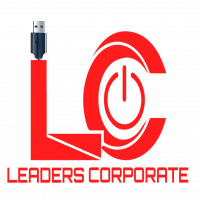Harnessing IoT in ERP: The Future of Real-Time Data and Efficiency

Strong 8k brings an ultra-HD IPTV experience to your living room and your pocket.
The Internet of Things (IoT) has significantly influenced the evolution of Enterprise Resource Planning (ERP) systems, offering capabilities for real-time data collection and analysis that enhance operational efficiency. By 2024, IoT-driven ERP systems are set to transform industries such as manufacturing, logistics, and retail by directly connecting devices, sensors, and equipment to ERP platforms. This integration empowers companies to monitor processes, track assets, and manage resources with unprecedented effectiveness.
IoT-enabled ERP systems collect data from a variety of smart devices, providing actionable insights that help organizations optimize their supply chains, reduce downtime, and boost productivity. In manufacturing, for example, sensors on production machinery can send real-time performance data to the ERP system. This data enables predictive maintenance, which helps prevent costly breakdowns by identifying potential issues before they cause equipment failure. This proactive approach not only reduces downtime but also extends the lifespan of machinery.
In the logistics sector, IoT technology offers real-time tracking of shipments. This capability allows businesses to manage delivery schedules more efficiently and maintain optimal inventory levels. Real-time shipment tracking ensures that companies can quickly respond to delays or disruptions, enhancing overall supply chain reliability. Furthermore, IoT sensors can monitor the condition of goods in transit, ensuring that temperature-sensitive products, for instance, remain within the required environmental parameters.
Retail is another sector experiencing significant benefits from IoT-enabled ERP systems. Smart shelves equipped with IoT sensors can continuously monitor stock levels and automatically reorder products when inventory runs low. This automation reduces the risk of stockouts, ensuring that popular items are always available for customers. Additionally, it minimizes excess inventory, which can tie up capital and increase storage costs. The data collected from these smart shelves can also provide retailers with valuable insights into customer buying patterns and preferences, enabling more effective marketing strategies and inventory management.
The integration of IoT into ERP systems offers businesses a competitive edge by enhancing visibility, enabling real-time decision-making, and facilitating proactive management of operations. Improved visibility allows companies to monitor their entire supply chain, from raw materials to finished products, in real-time. This comprehensive oversight helps identify inefficiencies and areas for improvement, leading to more streamlined operations.
Real-time decision-making is another significant advantage of IoT-enabled ERP systems. With access to up-to-date data, managers can make informed decisions quickly, responding to changes in demand, production issues, or supply chain disruptions as they occur. This agility is crucial in today’s fast-paced business environment, where the ability to adapt rapidly to changing conditions can determine a company’s success.
Proactive management is facilitated by the predictive capabilities of IoT technology. By analyzing data from various sensors and devices, businesses can anticipate potential problems and address them before they escalate. For example, predictive maintenance in manufacturing not only prevents equipment failure but also helps optimize maintenance schedules, reducing costs and improving efficiency.
As IoT technology continues to advance, its role in ERP systems will expand, driving even greater levels of automation and efficiency across industries. The future of ERP is one where IoT integration is standard, providing businesses with the tools they need to operate more effectively and stay ahead of the competition. By leveraging the power of IoT, companies can unlock new levels of operational excellence and achieve their strategic goals.
In conclusion, the integration of IoT with ERP systems marks a significant step forward in the digital transformation of businesses. The ability to collect, analyze, and act on real-time data from connected devices enhances operational efficiency, reduces costs, and improves decision-making. As industries continue to embrace this technology, the impact of IoT on ERP systems will only grow, ushering in a new era of smart, connected operations.
Leaders Corporate is a leading provider of ERP software and IT services in Pakistan and UAE. We excel in Odoo solutions, aiding enterprises in their digital transformation journey and fostering innovation.
Note: IndiBlogHub features both user-submitted and editorial content. We do not verify third-party contributions. Read our Disclaimer and Privacy Policyfor details.



